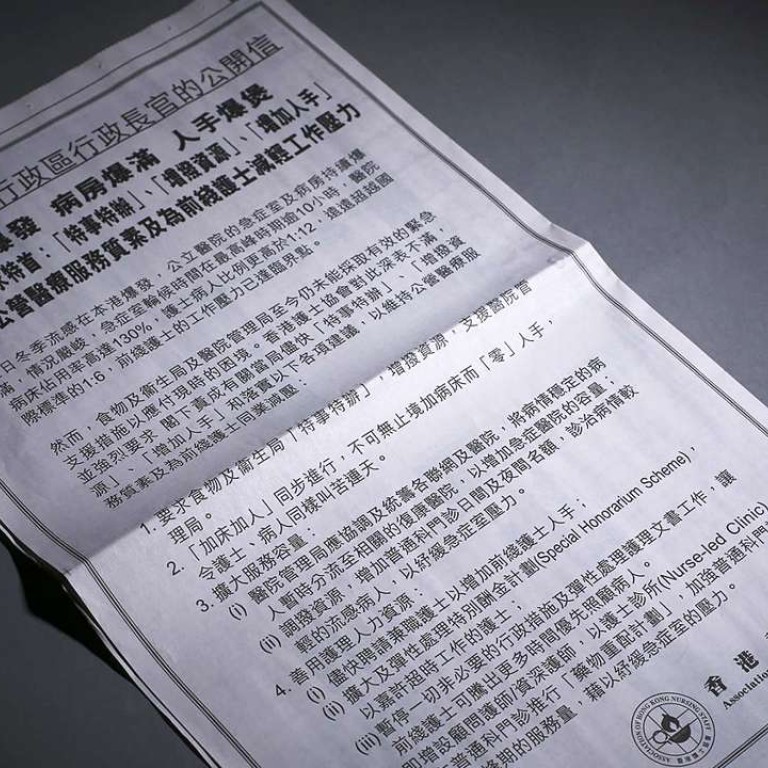
‘Breaking point’: Hong Kong nurses’ group publishes open letter to chief executive demanding help at overcrowded public hospitals
Association of Hong Kong Nursing Staff says members are ‘extremely discontented’, wants more resources and manpower in face of packed medical wards during flu season
The city’s biggest nurses’ group has placed an open letter in local Chinese newspapers calling for extra resources and manpower to help overcapacity public hospitals during the flu season.
In a full-page letter addressed to Chief Executive Leung Chun-ying, the Association of Hong Kong Nursing Staff urged Leung to come up with a special arrangement to increase resources and manpower so as to maintain service quality in the public health sector and ease the workload of frontline nurses.
The capacity of public hospitals has been further challenged in the ongoing flu season, with bed occupancy rates in medical wards exceeding 130 per cent. The group said the nurse to patient ratio was over 1-12, much higher than the international standard of 1-6.
READ MORE: Hong Kong government tells patients to use private doctors while public hospitals are full
“Work pressure of frontline nurses has reached a breaking point,” the letter stated.
The group claimed to be “extremely discontented” as the Food and Health Bureau and the Hospital Authority have not adopted effective emergency measures to handle the current situation.
They urged the authority to assign stable patients to rehabilitation hospitals in order to enhance the capacity of acute hospitals. Daytime and evening patient quotas at the authority’s general outpatient clinics should also be increased to treat patients with milder flu symptoms, the letter said.
READ MORE: Hong Kong hospital crisis: overcapacity, overworked doctors — and peak flu season will make it worse
The drug refill programme, under which patients would be assessed by nurses to continue their current medication, should be done in existing nurse-led clinics in the general clinics, the group added.
While recruitment of part-time nurses should be sped up, the special honorarium scheme, which pays medics for working extra hours, should be expanded, the group said. Nurses working overtime should also be rewarded.
They further called for suspension of unnecessary administrative measures and flexible arrangement of paperwork, to allow frontline nurses to spend more time taking care of patients.

